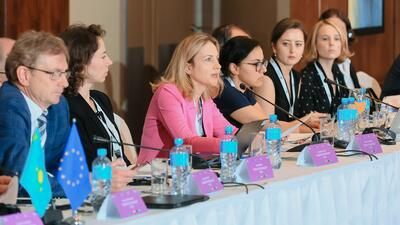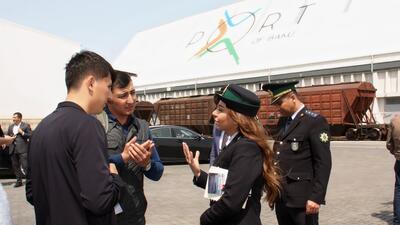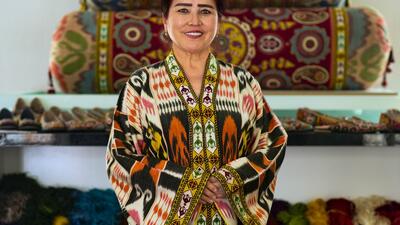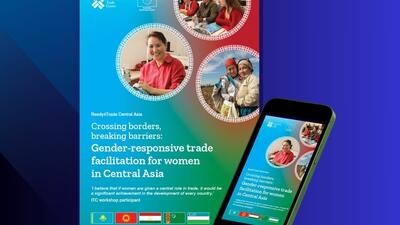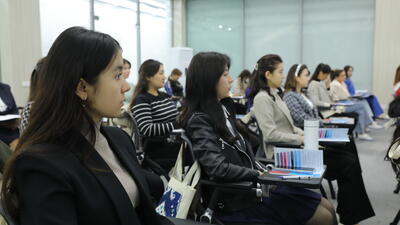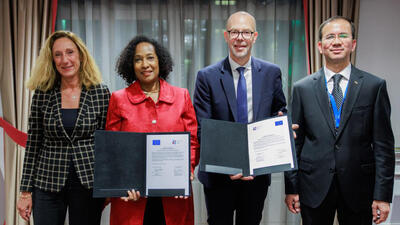
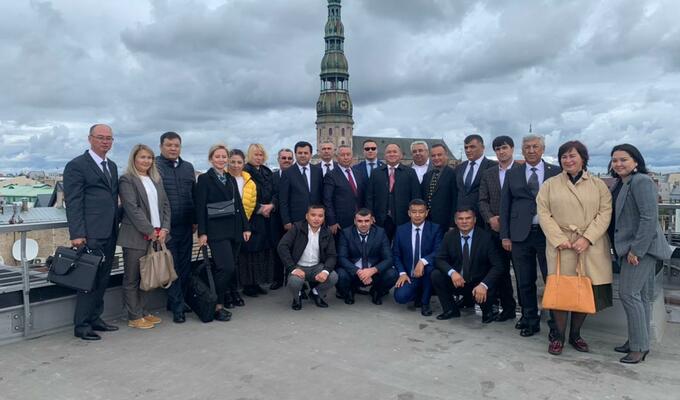
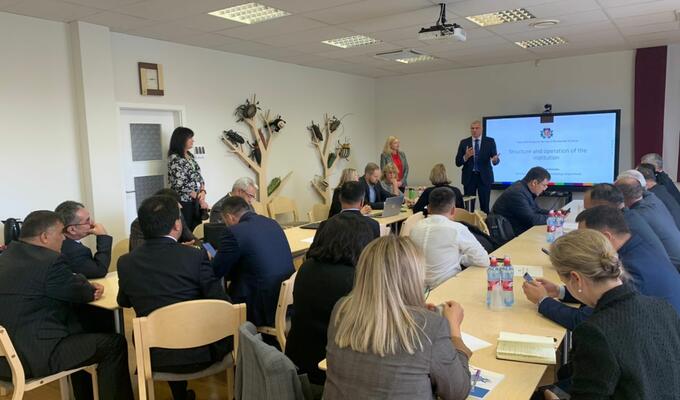
Reducing trade obstacles and food safety risks in Central Asia
Central Asian veterinary and phytosanitary agencies to apply European Union risk management systems and border control practices
Challenges related to phytosanitary and veterinary control procedures, issuance of relevant certificates and lack of their recognition across borders are major obstacles to trade in Central Asia, according to International Trade Centre (ITC) data.
However, phytosanitary and veterinary controls are critical for ensuring food safety standards, preventing plant and animal diseases, and protecting human health. Moreover, streamlining the procedure for issuing, using and accepting phytosanitary and veterinary certificates, as well as implementing risk management systems would reduce the administrative burden and decrease physical inspections at the border checkpoints, which would save money and time for businesses in Central Asia.
To address these challenges and boost exports to the European Union (EU), twenty officials from phytosanitary and veterinary agencies in Kazakhstan, Kyrgyzstan, Tajikistan and Uzbekistan went on a study tour to Latvia and Lithuania to learn EU best practices.
The delegation visited the Riga seaport, the Daugavpils railway terminal in Latvia, the Vilnius international airport checkpoint, the Medininkai border checkpoint as well as phytosanitary and veterinary laboratories and research institutes in Latvia and Lithuania.
They met officials and experts from customs, veterinary and phytosanitary agencies and exchanged knowledge and experience on import control practices, risk management systems, intra and inter-agency coordination, and discussed potential adaptation of best practices to the Central Asian context.
Dyikanbai Kenjebaev, Director of the Department of Chemicalization, Plant Protection and Quarantine at the Ministry of Agriculture of the Kyrgyz Republic said: “The Baltic experience will serve best practices and new approaches regarding border control measures. These new approaches could trigger reforms in the cross-border trade in Central Asia.”
Asel Uzagalieva, the GIZ component manager of its “Trade Facilitation in Central Asia” project added: “The participants could see the coordinated border control in action, gaining a deeper understanding of how risk management systems are used at European borders – this was an excellent opportunity to complement their knowledge. Additionally, the participants could discuss among themselves the regional issues related to cross-border trade and strengthen their networking in the field of veterinary and phytosanitary services in Central Asia.”
Pierre Bonthonneau, Trade Facilitation Adviser at the International Trade Centre concluded: “The study tour presented a unique opportunity to learn about best practices in integrated border management, the EU’s TRACES and risk management systems, as well as learn from each other. Peer learning and continuous experience sharing is crucial for the successful implementation of trade facilitation reforms, reduce the time and cost of cross-border operations and further boost trade flows in the region.”
The study tour (19-23 September 2022) was jointly organized by the International Trade Centre’s Ready4Trade Central Asia project and the “Trade Facilitation in Central Asia” project implemented by the Deutsche Gesellschaft für Internationale Zusammenarbeit (GIZ) GmbH (German federal enterprise for international cooperation) on behalf of the German Government.
Trade Facilitation in Central Asia
The regional project “Trade Facilitation in Central Asia” is commissioned by the German Federal Ministry for Economic Cooperation and Development (BMZ) and implemented by GIZ in four Central Asian countries: Kazakhstan, Kyrgyzstan, Tajikistan and Uzbekistan. The main objective of the project is to improve implementation of trade facilitation measures in the region by providing technical assistance on how to make border crossing and transit faster, more efficient and transparent. The project is implemented in cooperation with national ministries responsible for trade policy, customs authorities and border control agencies, as well as business associations.
About Ready4Trade Central Asia
Ready4Trade Central Asia is a four-year EU-funded project implemented by the International Trade Centre in close collaboration with national partners, designed to contribute to the overall sustainable and inclusive economic development of Central Asia by boosting intra-regional and international trade in the countries of the region. Beneficiaries of the Ready4Trade Central Asia project include governments, small and medium-sized enterprises, in particular women-led enterprises, and business support organizations.







